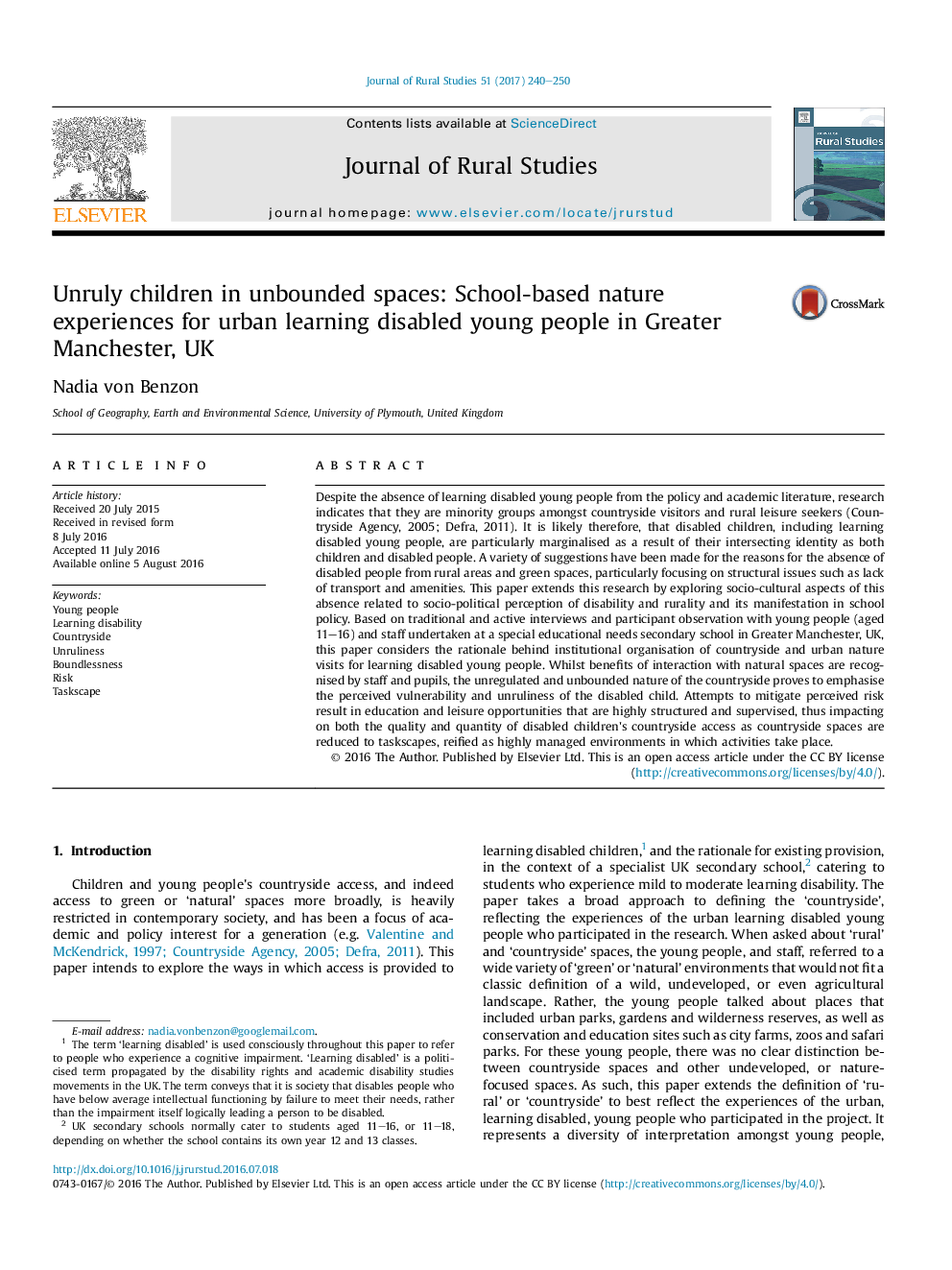| کد مقاله | کد نشریه | سال انتشار | مقاله انگلیسی | نسخه تمام متن |
|---|---|---|---|---|
| 6460106 | 1421780 | 2017 | 11 صفحه PDF | دانلود رایگان |
- Examines countryside and urban nature visits for learning disabled young people.
- Benefits of interaction with natural spaces recognised by staff and pupils.
- Staff construct disabled youth as vulnerable and unruly.
- Perceived risks results in high supervision and structure.
Despite the absence of learning disabled young people from the policy and academic literature, research indicates that they are minority groups amongst countryside visitors and rural leisure seekers (Countryside Agency, 2005; Defra, 2011). It is likely therefore, that disabled children, including learning disabled young people, are particularly marginalised as a result of their intersecting identity as both children and disabled people. A variety of suggestions have been made for the reasons for the absence of disabled people from rural areas and green spaces, particularly focusing on structural issues such as lack of transport and amenities. This paper extends this research by exploring socio-cultural aspects of this absence related to socio-political perception of disability and rurality and its manifestation in school policy. Based on traditional and active interviews and participant observation with young people (aged 11-16) and staff undertaken at a special educational needs secondary school in Greater Manchester, UK, this paper considers the rationale behind institutional organisation of countryside and urban nature visits for learning disabled young people. Whilst benefits of interaction with natural spaces are recognised by staff and pupils, the unregulated and unbounded nature of the countryside proves to emphasise the perceived vulnerability and unruliness of the disabled child. Attempts to mitigate perceived risk result in education and leisure opportunities that are highly structured and supervised, thus impacting on both the quality and quantity of disabled children's countryside access as countryside spaces are reduced to taskscapes, reified as highly managed environments in which activities take place.
Journal: Journal of Rural Studies - Volume 51, April 2017, Pages 240-250
